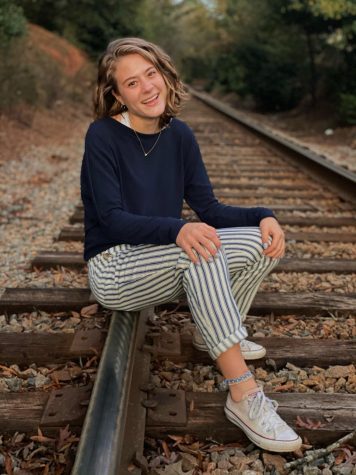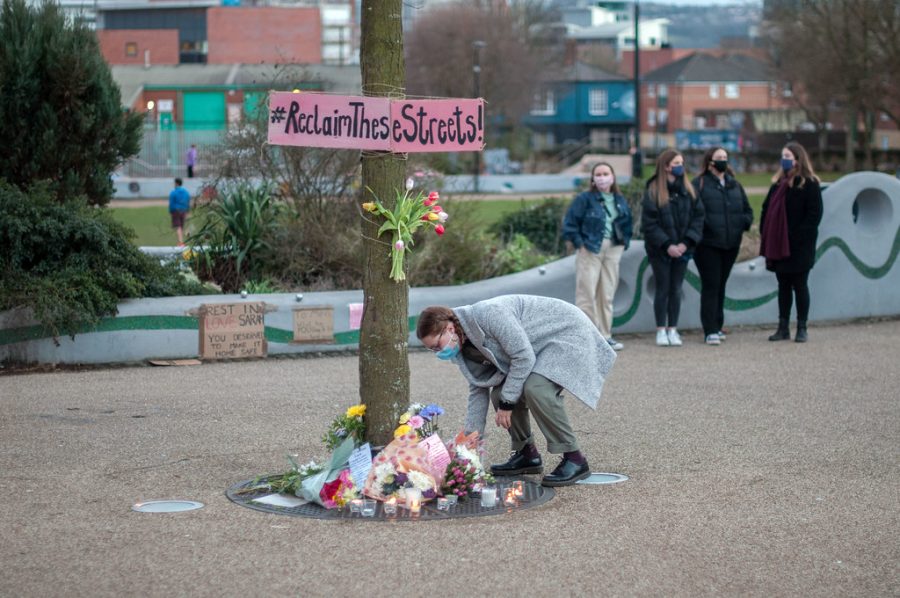What happened to Sarah Everard?
The tragic murder that has prompted conversation on women’s safety
Picture from flickr.com.
Violence against women is a hot topic, especially as more women report cases of sexual harassment, assault, and endangerment. Recent tragedies have brought attention to the subject, resulting in an uproar for change.
Sarah Everard, a 33-year-old English woman, was abducted and murdered walking home from a friend’s house in the Clapham neighborhood of London on March 3.
The walk home should have taken her a total of 50 minutes, as her apartment was in nearby Brixton. Everard chose to walk out of her way on well-lit, populated streets and called her boyfriend to let him know her location. These “strategies,” in addition to many others, are preached to women as methods of protecting themselves from predators. However, Everard’s efforts to stay safe were not enough.
“I don’t think any of her precautions really saved her because guys, especially predators, have now gotten used to the [methods] that women use to protect themselves. So [the predators] can use this against their prey to strategize around those [methods],” senior Taylor Adams said.
After days of searching for Everard, authorities discovered human remains, which were confirmed to be hers, on March 12 in a wooded area in Kent. Police are still scouring the area for more evidence, including Everard’s cellphone.
“Honestly, there’s nothing you can do to control the outcome when it comes to this,” Montesdeoca said. “You can’t control the actions of other people, and even if you [take all of these preventative measures] they won’t guarantee your safety.”
In the days following Everard’s initial disappearance, police allegedly went door to door in South London, instructing women to stay indoors to protect themselves. This enraged many women in the U.K. because they felt that the issue of violence against women was made out to be a responsibility that fell on them, rather than their perpetrators or the society that allows for this violence to ensue. Several protests, vigils and groups have launched in attestment to the police’s advice. However, the question remains as to whether or not these efforts will make a difference in the long run, especially when compared to past movements and protests.
“We’ve had a lot of protests this year and, as far as the level of change they’ve caused, that’s debatable,” senior Danny Burnett said. “It could spark change if it translates to the U.S. and other major societies, but it’s very difficult to get to that point, especially noticeable change that’s not just on a level where you change something for two weeks and then it goes back to the way it was before.”
The “Reclaim These Streets” movement took off in light of the tragedy in an effort to bring awareness to the issue of women’s safety. A vigil was scheduled on March 13 but was shut down by police, who once again told the women to go home and stay inside. Despite the police’s instructions, a large group turned out to protest.
Authorities began to grab women in an attempt to disperse the vigil, prompting the women to begin shouting, “Hey, mister, get your hands off my sister!” and “Arrest your own!” Ultimately, the police created an example of what the women were protesting in the first place.
“I think their message is that women shouldn’t have to feel scared when they do anything. We can’t take buses, we can’t take taxis, we can’t walk, we can’t take an Uber without feeling scared and like we need to protect ourselves,” Adams said. “Seeing a guy in public in the dark scares me, even if I’m in a big group. I’m hoping that this case will shed light on how much girls do to protect themselves and how much guys don’t really notice the struggles that we go through.”
Everard’s murder triggered a worldwide resurgence of the #MeToo movement, a social crusade against sexual abuse and harassment that started in 2006. Activists have connected the message of the #MeToo movement to what society and the police are still telling women – sacrifice freedom for temporary safety. More women have begun speaking out about their own experiences with sexual assault, rape and harassment on social media, spreading the message that Everard’s murder is an addition to a long list of violence. Through these women’s stories, attention to Everard’s case and the topic of violence against women in general has increased.
“The #MeToo movement is creating a ‘permission structure’ where people see somebody [come forward], so they think, ‘Oh I can do that myself and won’t get criticized,’ or face the consequences that they might perceive could happen,” Burnett said. “This is good because it helps people feel more comfortable, allowing more people to step up and tell their truth.”
Women are demanding security from male violence and suggest that the authorities, government, and men need to be the ones to “bear the burden” of enforcing this safety.
“No matter how old you are, as soon as you start hitting puberty, you’re already told as a girl to protect yourselves and men are never told that,” Adams said. “I kind of want that to change because we shouldn’t have to do all of this to protect ourselves if guys would just learn to not be awful people.”
On March 12, active police officer Wayne Couzens was charged with Everard’s kidnapping and murder. No reports have come out on how the authorities were able to conclude Couzens was responsible for the crime, and no connection has been discovered between Everard and Couzens, raising the question as to Couzens’ possible motive. A plea hearing is set for July 9, and his trial is scheduled to start in October.
“The police are really controversial right now anyways,” Burnett said. “I think it’s very difficult because the police are supposed to protect people, and when you’re feeling unsafe in a situation they’re the people you go to for help. When something like [Everard’s murder] happens, it makes people wonder if they can really trust the police.”
The heat in the U.K. surrounding the murder of Everard is growing, especially with the arrest of Couzens. The movements invested in the case are continuing to push the fact that justice will not be served until violence against women is addressed on a societal level.
“I feel like most [women have] had their own experience with harassment, and it’s not a nice thing to think about,” Montesdeoca said. “If you really think about it, so many women’s decisions are based on taking measures to protect themselves. This has to be spoken about more – it would be so amazing imagining us as humans protecting each other instead of blaming each other.”

My name is Abbey Keller and I am a senior this year! I am the Sports Editor, and have been on the Spartan Shield staff for two years now. When I’m not...

